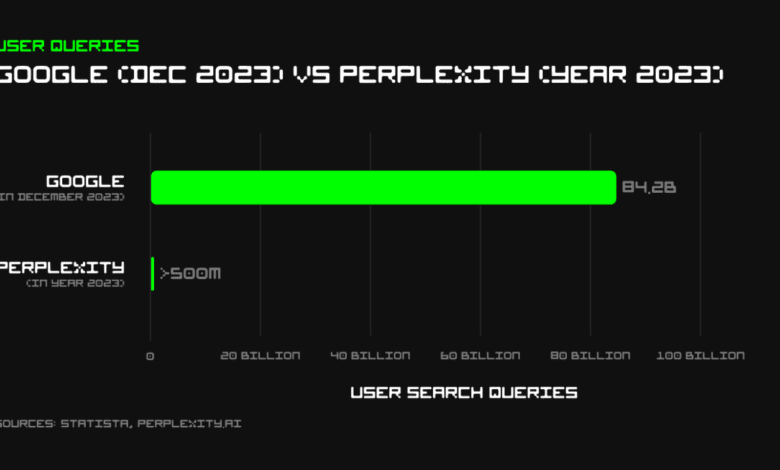I Tried Perplexity for a Week, and I Don’t Think AI Search Engines Can Replace Google… Yet

In today’s digital world, search engines play a vital role in our daily lives. They help us find information quickly and efficiently. Among the many search engines available, Google has long been the dominant player. However, with the rise of artificial intelligence, new search engines like Perplexity are starting to gain attention. After trying Perplexity for a week, I want to share my thoughts and why I believe AI search engines can’t fully replace Google just yet.
Table of Contents
ToggleWhat Is Perplexity?
Before diving into my experience, let’s understand what Perplexity is. Perplexity is an AI-powered search engine that aims to provide answers in a more conversational manner. Unlike traditional search engines that show a list of links, Perplexity tries to summarize information and answer questions directly. It uses advanced algorithms to understand user queries better and provide relevant information.
Day 1: Getting Started with Perplexity
I started my week with high hopes for Perplexity. I was eager to see how it would compare to Google, which has been my go-to search engine for years. The interface was user-friendly, and I found it easy to enter my queries. I asked simple questions like, “What’s the weather like today?” and “Who won the World Series?”
Perplexity provided quick answers, pulling data from various sources. The information was presented in a clear format, which I appreciated. However, I noticed that some answers were less detailed than I expected. For instance, when I asked about the World Series, it gave me the winner’s name but lacked context, such as the score or key moments from the game. This initial experience made me realize that while Perplexity is efficient, it might not always provide the depth of information I was used to from Google.
Day 2: Searching for Specific Information
On the second day, I decided to test Perplexity with more specific queries. I wanted to know about the latest developments in renewable energy. I typed, “What are the recent advancements in solar technology?”
Perplexity returned several points summarizing advancements in solar technology. It listed new types of solar panels and recent breakthroughs in efficiency. While the information was useful, I found it lacking in detail. Google often provides a broader range of articles and studies, allowing me to dive deeper into the topic. With Perplexity, I felt like I was getting a quick overview, but I missed the ability to explore topics in depth.
Day 3: Comparing Results with Google
By the third day, I wanted to compare the results from Perplexity and Google side by side. I chose a popular topic: “The benefits of meditation.”
When I searched on Google, I received a variety of links to articles, studies, and videos. Some were from well-known health websites, while others were from personal blogs. Google allowed me to explore the topic from different angles. I could read scientific studies, personal experiences, and expert opinions.
In contrast, Perplexity provided a concise summary of the benefits of meditation. It listed points like stress reduction and improved focus. While this was helpful, I realized I was missing the opportunity to explore various viewpoints. Google’s search results allowed for a more comprehensive understanding of the topic.
Day 4: Handling Complex Queries
As the week progressed, I decided to test how well Perplexity could handle more complex queries. I asked, “What are the economic impacts of climate change?”
Perplexity provided a summary highlighting some economic challenges related to climate change. However, the answer felt somewhat surface-level. It didn’t delve into specific examples or case studies, which I often find in Google search results. I wanted to understand how different countries are affected economically and what solutions are being proposed.
Google excelled in this area, providing articles from a range of sources, including research papers and news articles. This made it easier for me to get a well-rounded understanding of the issue. Perplexity’s summary felt like a good starting point, but it didn’t offer the depth I was looking for.
Day 5: User Experience and Interface
Throughout my experience, I also paid attention to the user interface of Perplexity. The design was clean and intuitive, which made it easy to navigate. I liked that I could quickly access different types of information, such as images and data, without clutter.
However, I found the lack of filtering options somewhat limiting. Google allows users to filter results by date, type (images, news, etc.), and other categories. This flexibility helps users find exactly what they’re looking for. In contrast, Perplexity felt more rigid in its approach, focusing on providing direct answers without allowing for extensive filtering.
Day 6: Assessing Credibility
Another aspect I considered was the credibility of the information provided. Google has a wide range of sources, which can sometimes lead to misinformation. However, it also allows users to cross-reference information easily. I often look for articles from reputable websites or studies from recognized institutions.
Perplexity, on the other hand, pulls data from various sources, but it doesn’t always provide clear citations. When I asked for information on health-related topics, I wanted to know where the data was coming from. It’s important to have credible sources, especially when dealing with health or scientific inquiries. This lack of transparency in citations was a significant drawback for me.
Day 7: Conclusion and Final Thoughts
As my week with Perplexity came to an end, I reflected on my overall experience. While Perplexity has several advantages, such as quick responses and a user-friendly interface, it still falls short compared to Google in many areas.
Here are some key takeaways from my experience:
- Efficiency vs. Depth: Perplexity is efficient for getting quick answers but often lacks the depth and context that Google provides. For in-depth research or complex queries, Google still reigns supreme.
- User Experience: While Perplexity offers a clean and simple interface, it lacks the filtering options that make Google so versatile. The ability to dive deeper into topics is a significant advantage for Google users.
- Credibility of Information: The transparency regarding sources is essential for ensuring credible information. Google allows users to check the reliability of sources easily, which is crucial for accurate information.
- Suitability for Different Needs: If you’re looking for quick answers or general information, Perplexity can be a useful tool. However, for in-depth research or academic purposes, Google remains the better option.
- Future of AI Search Engines: While AI search engines like Perplexity show promise and innovation, they still have a long way to go before they can fully replace traditional search engines. The integration of AI is exciting, and future updates may improve their capabilities, but for now, Google holds a significant advantage.
FAQs
1. Can Perplexity replace Google?
- Not yet. While Perplexity is efficient for quick answers, it lacks the depth and versatility that Google offers.
2. Is Perplexity user-friendly?
- Yes, Perplexity has a clean interface that makes it easy to navigate and find information quickly.
3. How does Perplexity handle complex queries?
- Perplexity provides summaries for complex queries but may not delve into the details as thoroughly as Google.
4. Are the answers from Perplexity reliable?
- Perplexity pulls information from various sources, but it doesn’t always provide clear citations, which can affect credibility.
5. What are the advantages of using Google?
- Google offers a wide range of sources, filtering options, and the ability to explore topics in depth, making it suitable for comprehensive research.
In conclusion, while I appreciate the innovation that Perplexity brings to the table, I believe Google will remain my primary search engine for the foreseeable future. The combination of efficiency, depth, and credible information that Google provides is unmatched, making it a trusted companion in my quest for knowledge.


